Chilling Study Sums Up Link Between Religion And Suicide For Queer Youth

Faith is supposed to be a source of strength for believers, especially during times of struggle and sorrow. However, a new study suggests that religiosity may be linked to negative feelings among queer individuals ― including increases in suicidal behaviors.
The study, published in the American Journal of Preventive Medicine last month, is a chilling revelation of the ties between suicide and theology that doesn’t affirm queer identity.
“Religious groups who stigmatize LGBT people should be aware of the potential damage they can do to an individual and families, and honestly the damage they do to themselves as an organization,” study co-author John R. Blosnich told HuffPost.
Blosnich, of West Virginia University’s Injury Control Research Center, said that for decades, studies have indicated that religion generally protects people against thoughts of suicide. But the research has also shown that religion specifically doesn’t have that impact on those who identify as lesbian, gay, bisexual or questioning.
In order to study religiosity and suicidal ideation among sexual minorities, Blosnich and his fellow researchers turned to data collected by the University of Texas at Austin’s Research Consortium. The consortium produces national, large-scale studies on the mental health of college students. Its latest 2011 study surveyed 21,247 students aged 18 to 30 years old.
Out of this group, about 2.3 percent identified as lesbian or gay, 3.3 percent identified as bisexual and 1.1 percent said they were questioning their sexuality. (About 0.2 percent identified as transgender, which was too small of a sample to analyze.)
The students were asked to rate how important their religious or spiritual beliefs were to their personal identity. They were also asked a number of questions about whether they had ever seriously considered or attempted suicide.

Analyzing this data, the research team found that while 3.7 percent of heterosexual young adults reported recent thoughts of suicide, the percentages were significantly higher among queer youth. Those questioning their sexuality had the highest rate of recent thoughts about suicide at 16.4 percent, followed by bisexual individuals (11.4 percent) and lesbian or gay individuals (6.5 percent).
Five percent of heterosexual youth reported attempting suicide in their lifetimes, compared to 20 percent of bisexual youth, 17 percent of questioning youth and 14 percent of gay or lesbian youth.
Notably, the study authors found that religion may have acted as a protective factor against suicide attempts among heterosexual youth. Each increase in the level of importance of religion among straight youth was associated with a 17 percent reduction in recent suicide attempts.
On the other hand, for lesbian and gay youth, increasing levels of religious importance were associated with increased odds of recent suicidal ideation. In fact, lesbian and gay youth who said that religion was important to them were 38 percent more likely to have had recent suicidal thoughts, compared to lesbian and gay youth who reported religion was less important. Religiosity among lesbians alone was linked to a 52 percent increased chance of recent suicidal ideation.
Questioning youth who said religion was important to them were nearly three times as likely to have attempted suicide recently, compared to questioning youth who reported religion was less important.
For bisexual individuals, the importance of religion was not significantly associated with suicidal ideation or suicide attempts.
Overall, sexual minorities were also more likely than straight youth to report that religion was not important to them.
Blosnich said that sexual minorities who have greater religious belief may experience conflict between their faith and their sexual identity.
“It can be very scary to be caught in a space where your religion tells you that you are a ‘sinner’ just for being who you are,” he told HuffPost. “Sexual minority people may feel abandoned, they may experience deep sadness and anger, and they may worry what this means for their families ― especially if their families are very religious too.”
Studies conducted by the Centers for Disease Control and Prevention have also found that lesbian, gay and bisexual youth seriously contemplate or attempt suicide at higher rates than heterosexual youth.
Blosnich said he’s not sure if societal changes since 2011 ― most notably the national legalization of same-sex marriage ― would lead to different results today. Large-scale surveys that ask about suicidal behavior, sexual orientation and religion are “very rare,” he said, which is why the team used the 2011 data. That survey looked only at college students, which means the findings may also not be generalizable to the broader LGBQ community.
The authors noted that the original data also did not include questions about whether respondents’ religions advocated stigmatizing beliefs about sexual minorities.
While several mainline Protestant and even evangelical leaders have begun to embrace a more inclusive theology, some of America’s largest religious denominations still hold non-affirming views of queer sexuality. Roman Catholic Church doctrine views gay and lesbian relationships as “intrinsically disordered.” The largest Protestant denomination in the U.S., the Southern Baptist Convention, sees marriage as exclusively reserved for one man and one woman and actively rejects equating gay rights with civil rights.
While these conservative denominations instruct believers to treat lesbian, gay and bisexual individuals with love, most encourage queer people to either remain celibate their entire lives or enter into mixed-orientation marriages.
Amelia Markham is a queer Christian activist with The Reformation Project, which works for the inclusion of LGBTQ people in the Christian church. They think Blosnich’s study demonstrates that for many queer people, non-affirming theology is at best problematic and at worst lethal ― “no matter how kindly or compassionately” it is articulated.
A number of Christian leaders are working toward a more nuanced view of queer sexuality, Markham said, but more needs to be done.
“There are some serious questions we have to begin asking ourselves if maintaining one interpretation of our sacred text is demonstrably linked to bodily harm and spiritual devastation for an entire group of people,” Markham said. “That is something I hope religious folks across the board would begin to think and pray more critically through.”
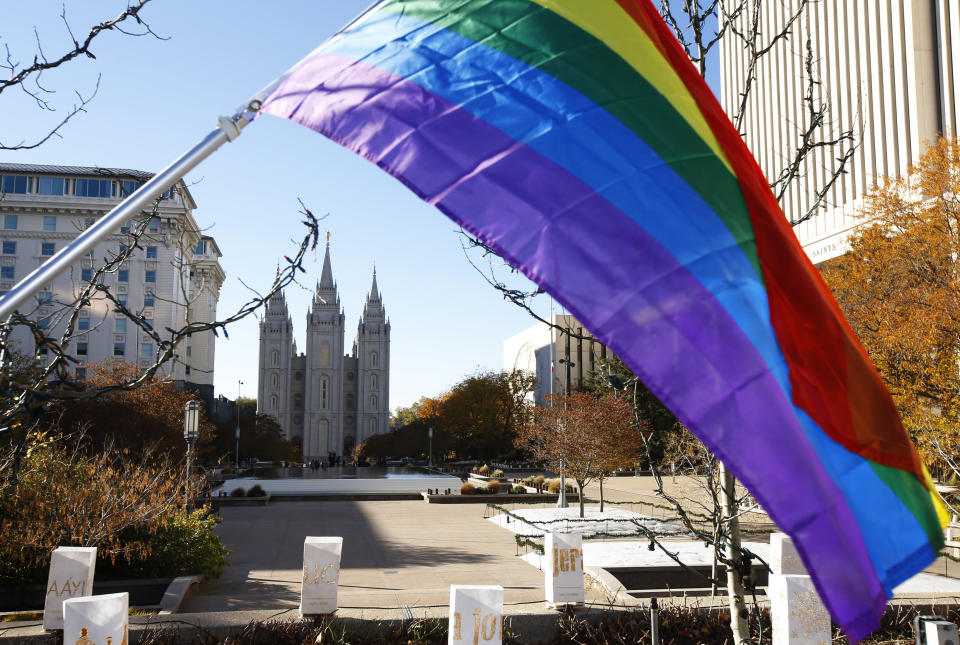
In Utah, where the Church of Jesus Christ of Latter-day Saints is based, researchers have documented a recent spike in teen suicides. Some advocates for LGBTQ Mormon teens have asserted that the spike is connected to the church’s policies on queer sexuality, although research hasn’t confirmed this link.
The Mormon church views queer relationships as sinful. In November 2015, it declared that Mormons in such relationships were to be considered apostates.
Diane Oviatt, a Mormon mother with a gay son, is part of Mama Dragons, a group of parents who have banded together to advocate for their queer children. She believes that non-affirming theology has a “direct” effect on suicidal ideation among LGBTQ youth and young adults. The Mormon church prioritizes marriage and formation of a “traditional” family, she said, and LGBTQ Mormons struggle with the fact that they don’t fit into that mold.
“There is absolutely no room for homosexuality anywhere in the doctrine,” she told HuffPost. “Our kids are stripped of hope and faced with the notion that they, by virtue of their sexual identity, are ruining their celestial ‘forever’ family and will be separated from them in the hereafter if they choose a same-sex partner.”
The only options left to queer Mormon teens are celibacy or mixed-orientation marriages, “both of which have extremely high levels of dissatisfaction and despair,” Oviatt said.
What LGBTQ kids need, she said, are religious communities that accept them wholeheartedly.
The Naming Project is one such community. The Christian ministry, which seeks to create safe spaces for LGBTQ youth, organizes an annual summer camp in Minnesota for teens of any sexual orientation, gender identity or gender expression.
Project director Ross Murray said that ministries like his aim to provide support and affirmation to youth who may feel rejected by their own faith communities. When more religious groups affirm LGBTQ teens as their “whole and authentic selves,” he said, it will lead to healthier adult LGBTQ people of faith.
“When religious communities are affirming and supportive of identity, including sexual orientation and gender identity, then the people within those communities are going to develop into much healthier and better-functioning individuals who understand themselves and how they relate to the rest of the world,” Murray said.
Love HuffPost? Become a founding member of HuffPost Plus today.

As a child growing up in a non-affirming church, Isaac Archuleta said he experienced depression, anxiety, low self-esteem and substance abuse. Today, he identifies as bisexual and serves as the interim executive director of the Q Christian Fellowship. As a Colorado-based psychotherapist, he focuses on providing therapy to LGBTQ clients and their religious families.
Archuleta said he believes mental health providers should always affirm their clients’ sexual orientation and gender identity. Counselors who, for religious reasons, do not truly accept their LGBTQ clients end up promoting the shame from which their clients need to be rescued. They’re “working against love even though they preach a message of love,” he said.
Studies like the one conducted by Blosnich’s team are necessary, Archuleta argued, to help educate the non-affirming church.
“The most devastating effect for children in non-affirming religious environments, in my opinion, is an identity distortion that teaches the child to feel valueless as a relational being,” Archuleta said. “When a child feels unwelcome, too damaged for relationships, we strip them of their very purpose and sense of worth.”
“For a religion to have such a capacity and the willingness to maintain that maladaptive power is, in my opinion, antithetical to the God of love.”
If you or someone you know needs help, call 1-800-273-8255 for the National Suicide Prevention Lifeline. You can also text HOME to 741-741 for free, 24-hour support from the Crisis Text Line. Outside the U.S., please visit the International Association for Suicide Prevention for a database of resources.
Also on HuffPost
Christian Musicians Come Out As Queer
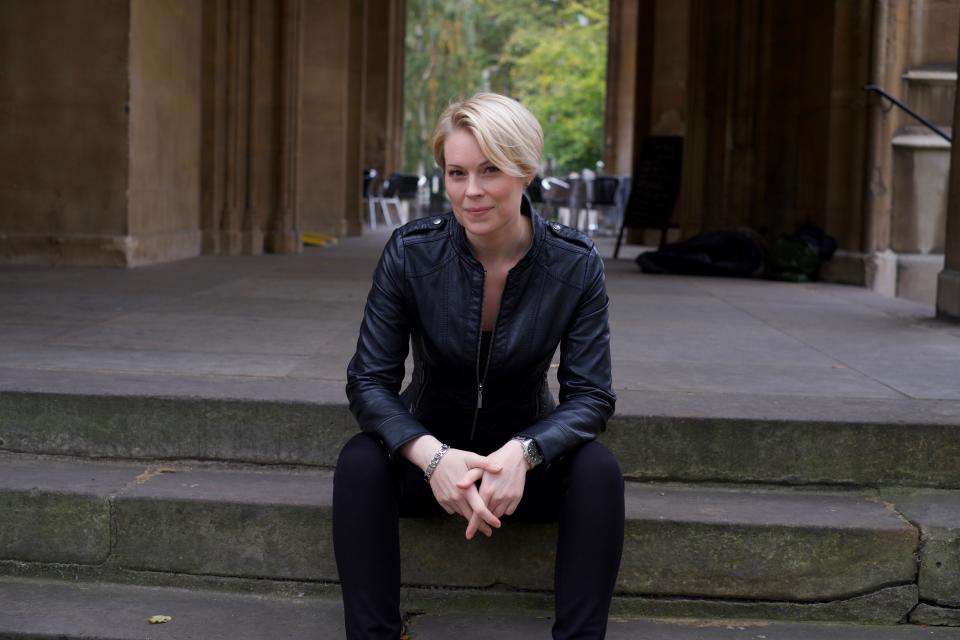
Christians Rally With Other Faith Groups For Transgender Rights
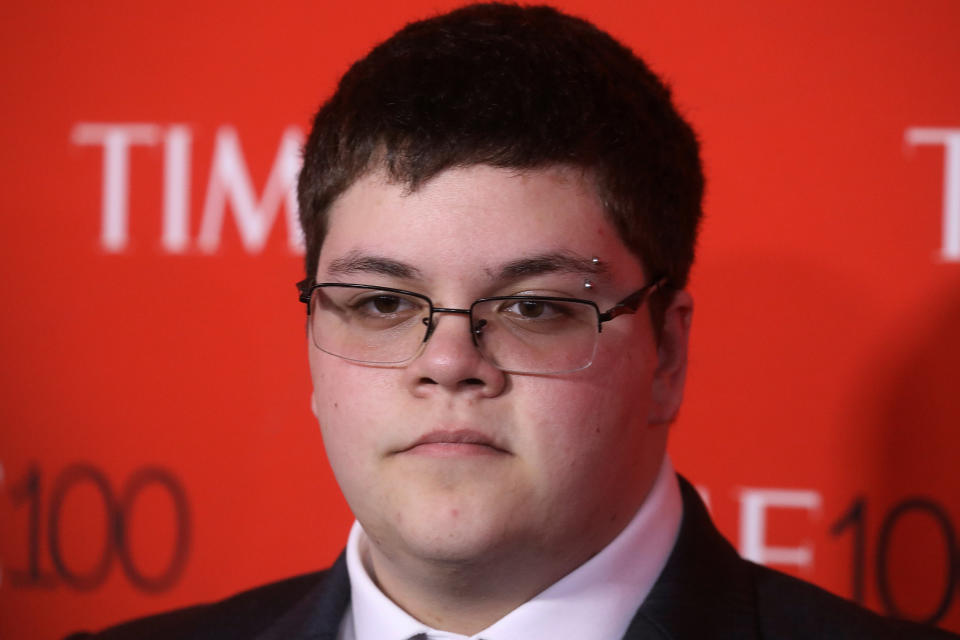
@danny_c_cortez, Co-Pastor of New Heart Community Church, invited neighboring clergy to hear panel of #LGBTQ voices -#UnionontheHill pic.twitter.com/mDoDPRGHLk
— peopleoffaithNOVA (@peopleoffaithVA) May 17, 2017
A New, Inclusive Christian College Campus Ministry Is Born
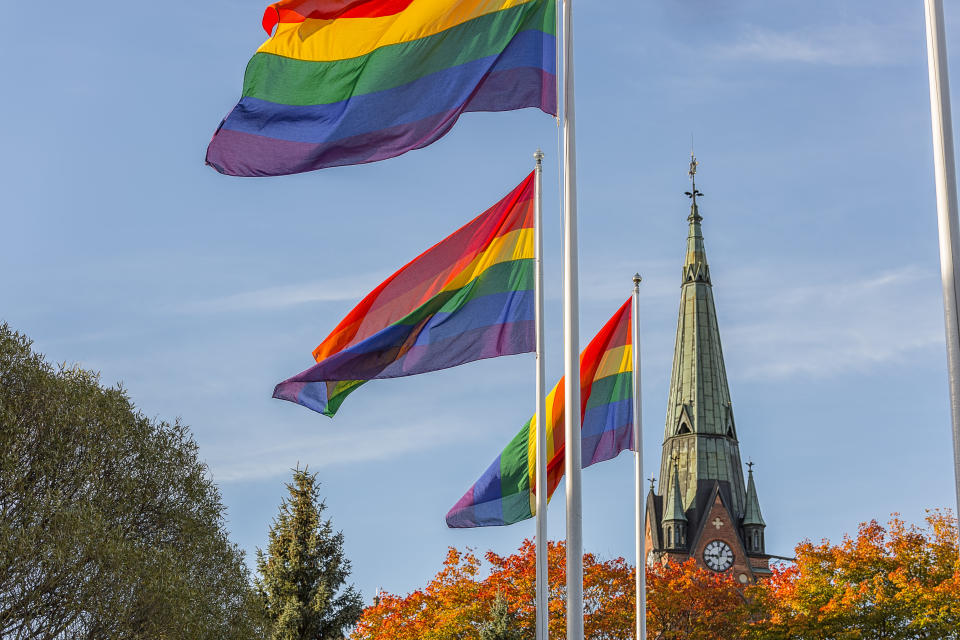
The Episcopal Church Refuses To Back Down On Equality
![<a href="https://www.washingtonpost.com/news/acts-of-faith/wp/2015/07/01/why-the-episcopal-church-is-still-debating-gay-marriage/?utm_term=.9873ad1a71f6" target="_blank">In 2015</a>, the bishops of the Episcopal Church decided to allow clergy members to perform same-sex weddings. The church defended that decision in 2016 in front of its international umbrella organization, the Anglican Communion. That resulted in a three-year suspension from the Anglican Communion -- but the Episcopalians didn't back down. <br />Michael Curry, the Episcopal Church’s presiding bishop, said after the suspension that “Many of us have committed ourselves and our church to being ‘a house of prayer for all people,’ as the Bible says, [where] all are truly welcome."](https://s.yimg.com/ny/api/res/1.2/YeUeTWYLQhlF_VOrqLE7MA--/YXBwaWQ9aGlnaGxhbmRlcjt3PTk2MA--/https://img.huffingtonpost.com/asset/591e0d41270000520090ec9b.jpeg)
Michael Curry, the Episcopal Church’s presiding bishop, said after the suspension that “Many of us have committed ourselves and our church to being ‘a house of prayer for all people,’ as the Bible says, [where] all are truly welcome."
The Rev. Karen Oliveto Becomes The Methodist Church's First Openly Gay Bishop
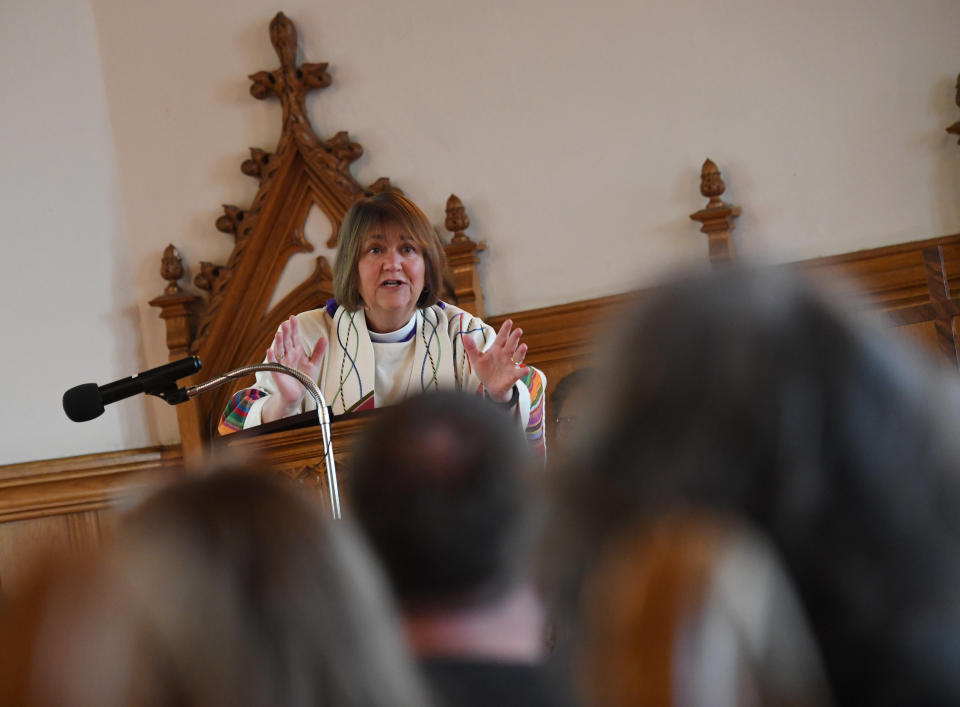
"It's no longer an issue. It's about people," she told Religion News Service.
A Pastor Who Conducted His Gay Son's Wedding Is 'Refrocked'
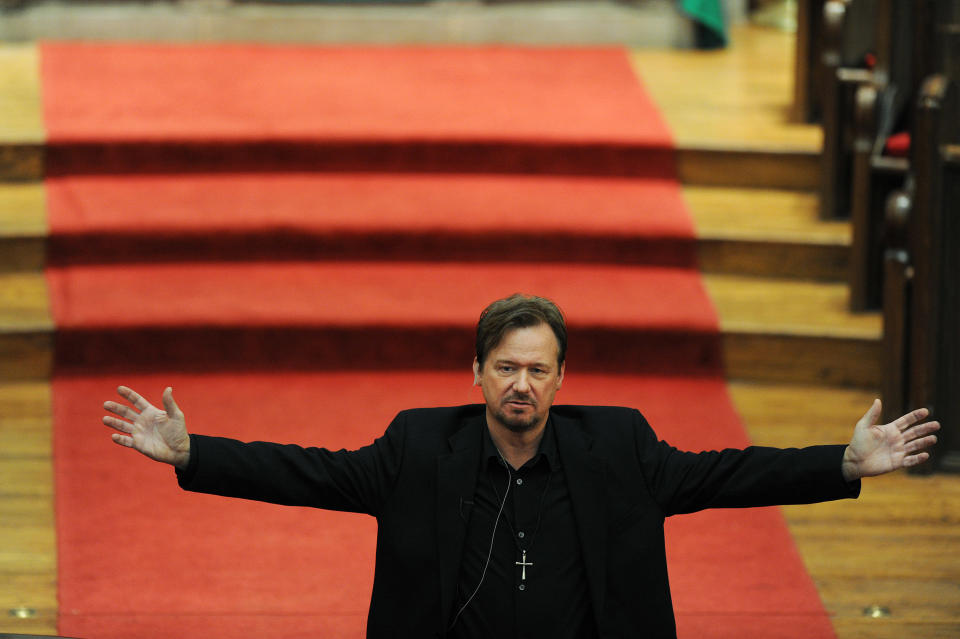
Presbyterian Church (U.S.A.) Embraces LGBT-Inclusive Definition Of Marriage

Ex-Gay Ministry Exodus International Shuts Down

Proud to marry Brian and Joe at my house. Couldn't be happier, two longtime White House staffers, two great guys. pic.twitter.com/0om1PT7bKh
— VP Biden (Archived) (@VP44) August 1, 2016
The Chicago Consultation Meets In Africa
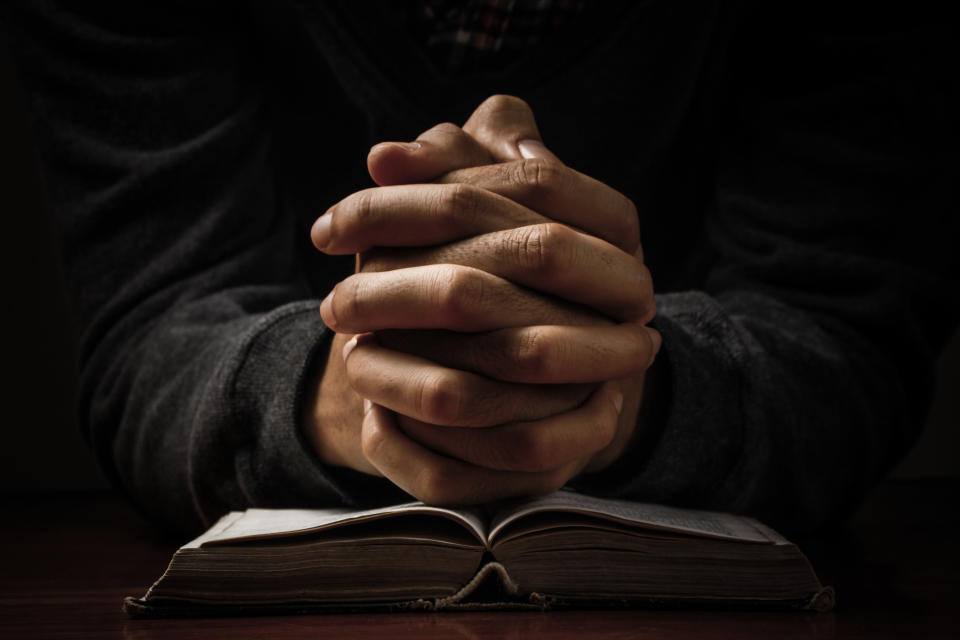
"Every day, I heard a new story about the ingenious ways they were resisting stigma around HIV/AIDS, LGBTQ visibility, and equitable access to health care. People from five different countries told stories of courage and resilience motivated by a nagging sense that their full humanity should and will be affirmed. The small scale and quiet setting of the gathering is indicative of the manner in which social transformation often takes place: over a drink, in a huddle, or elbow-to-elbow."
Mormons March At Pride
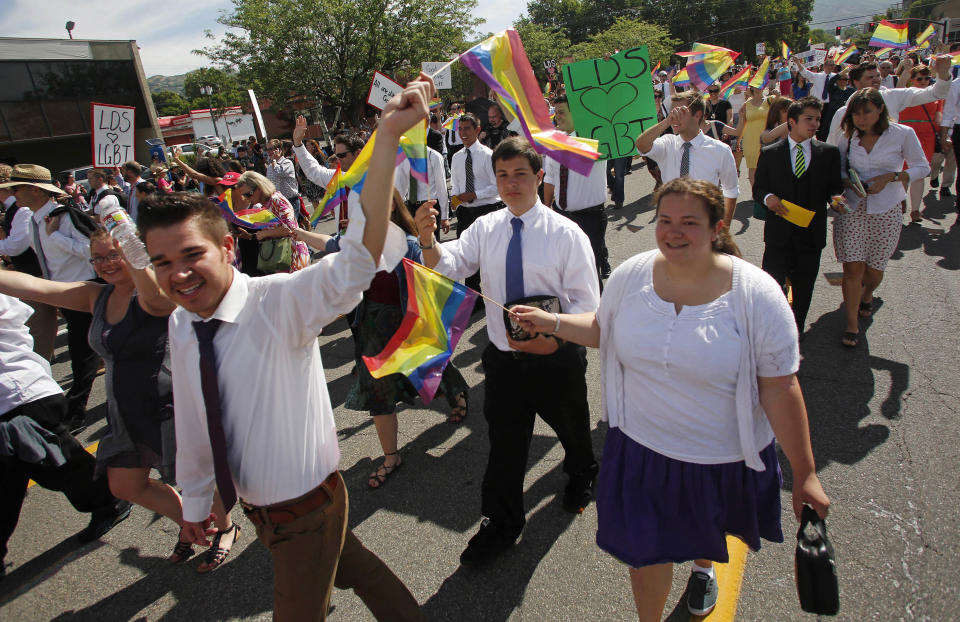
"Since then, there have been some crushing, traumatizing moments as well. ... Most of the hope has come from queer Mormons themselves. Attendance at Affirmation conferences has quadrupled since 2012," he told HuffPost. "LGBT Mormons are coming together in a spectacular way and finding new ways to provide mutual support and engage with their faith."
A Gay Couple Become The Pastors Of A Historic D.C. Church
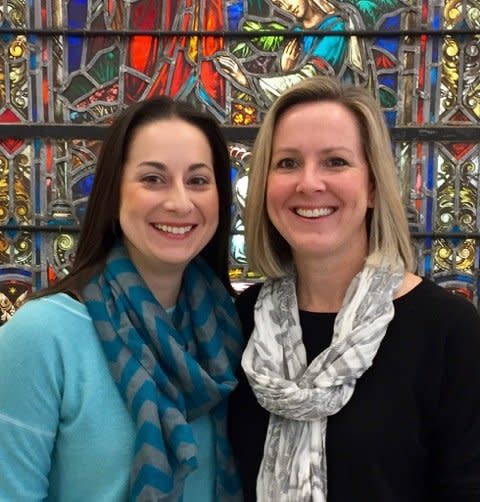
Transgender Pastors Celebrate Mass In Cuba
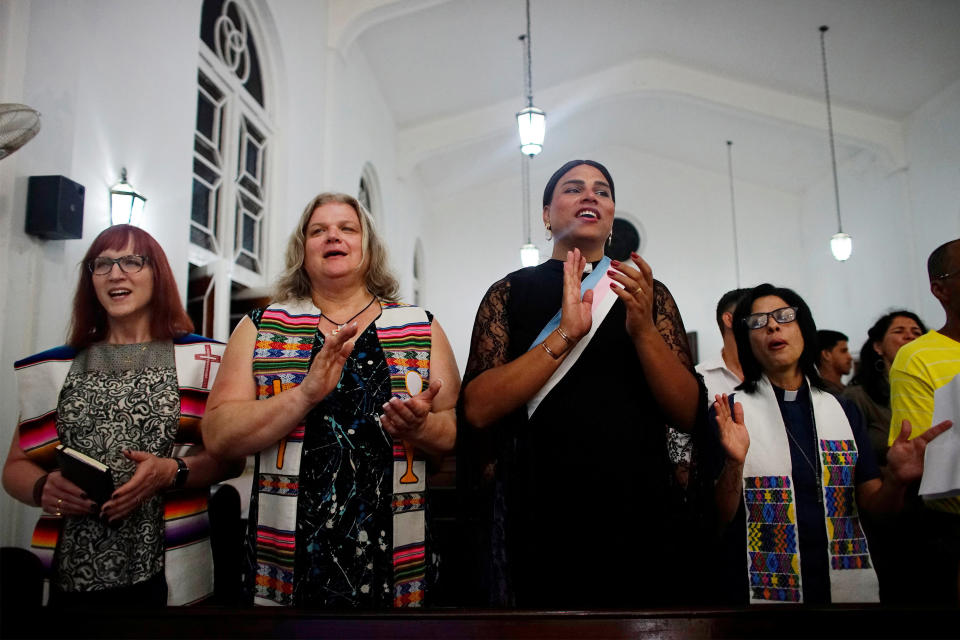
One participant, a 26-year-old Cuban trans woman named Malu Duardo, told Reuters, "I leave with having learnt a lot of things I can share with other trans, in particular that there is a God for everyone."
This article originally appeared on HuffPost.


